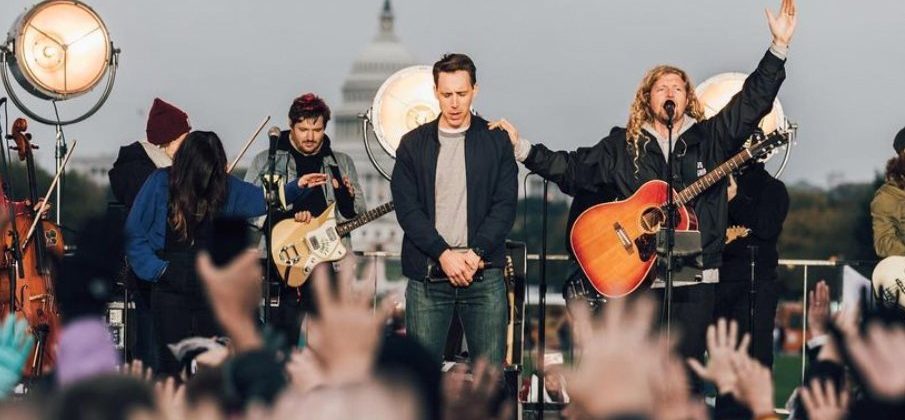

Sometimes it’s really hard to tell.
Here is Elisabeth Dias and Ruth Graham at The New York Times:
They opened with an invocation, summoning God’s “hedge of thorns and fire” to protect each person in the dark Phoenix parking lot.
They called for testimonies, passing the microphone to anyone with “inspirational words that they’d like to say on behalf of our J-6 political prisoners,” referring to people arrested in connection with the Jan. 6, 2021, attack on the Capitol, whom they were honoring a year later.
They opened with an invocation, summoning God’s “hedge of thorns and fire” to protect each person in the dark Phoenix parking lot.
They called for testimonies, passing the microphone to anyone with “inspirational words that they’d like to say on behalf of our J-6 political prisoners,” referring to people arrested in connection with the Jan. 6, 2021, attack on the Capitol, whom they were honoring a year later.
At events across the United States, it is not unusual for participants to describe encountering the divine and feel they are doing their part to install God’s kingdom on earth. For them, right-wing political activity itself is becoming a holy act.
These Christians are joining secular members of the right wing, including media-savvy opportunists and those touting disinformation. They represent a wide array of discontent, from opposing vaccine mandates to promoting election conspiracy theories. For many, pandemic restrictions that temporarily closed houses of worship accelerated their distrust of government and made churchgoing political.
At a Trump rally in Michigan last weekend, a local evangelist offered a prayer that stated, “Father in heaven, we firmly believe that Donald Trump is the current and true president of the United States.” He prayed “in Jesus’ name” that precinct delegates at the upcoming Michigan Republican Party convention would support Trump-endorsed candidates, whose names he listed to the crowd. “In Jesus’ name,” the crowd cheered back.
The infusion of explicitly religious fervor — much of it rooted in the charismatic tradition, which emphasizes the power of the Holy Spirit — into the right-wing movement is changing the atmosphere of events and rallies, many of which feature Christian symbols and rituals, especially praise music.
With spiritual mission driving political ideals, the stakes of any conflict, whether over masks or school curriculums, can feel that much larger, and compromise can be even more difficult to achieve. Political ambitions come to be about defending God, pointing to a desire to build a nation that actively promotes a particular set of Christian beliefs.
Read the rest here.